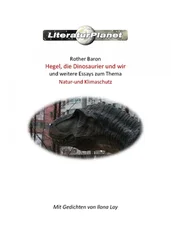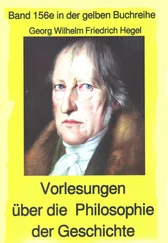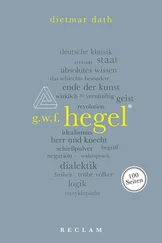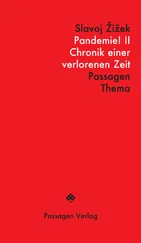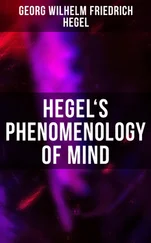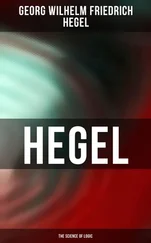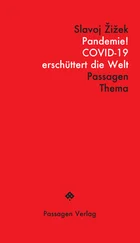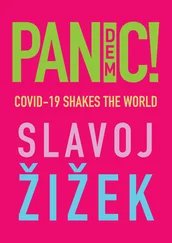1 Cover
2 Title Page Reading Hegel Slavoj Žižek, Frank Ruda, and Agon Hamza polity
3 Copyright Copyright © Slavoj Žižek, Frank Ruda, and Agon Hamza 2022 The right of Slavoj Žižek, Frank Ruda, and Agon Hamza to be identified as Authors of this Work has been asserted in accordance with the UK Copyright, Designs and Patents Act 1988. First published in 2022 by Polity Press Polity Press 65 Bridge Street Cambridge CB2 1UR, UK Polity Press 101 Station Landing Suite 300 Medford, MA 02155, USA All rights reserved. Except for the quotation of short passages for the purpose of criticism and review, no part of this publication may be reproduced, stored in a retrieval system or transmitted, in any form or by any means, electronic, mechanical, photocopying, recording or otherwise, without the prior permission of the publisher. ISBN-13: 978-1-5095-4591-9 A catalogue record for this book is available from the British Library. Library of Congress Control Number: 2021939021 The publisher has used its best endeavors to ensure that the URLs for external websites referred to in this book are correct and active at the time of going to press. However, the publisher has no responsibility for the websites and can make no guarantee that a site will remain live or that the content is or will remain appropriate. Every effort has been made to trace all copyright holders, but if any have been overlooked the publisher will be pleased to include any necessary credits in any subsequent reprint or edition. For further information on Polity, visit our website: politybooks.com
4 Notes on the text Notes on the text The first chapter, Hegel: The Spirit of Distrust , was written by Slavoj Žižek; the second chapter, Hegel on the Rocks: Remarks on the Concept of Nature , by Frank Ruda; and the third, The Future of the Absolute , by Agon Hamza. The introduction is coauthored.
5 Introduction Notes
6 1 Hegel: The Spirit of DistrustHegel in a Topsy-Turvy World Reconciliation in Hegel “Forgiving Recollection”: Yes, but … From Concrete Universality to Subject How does “Stubborn Immediacy” Arise? The Alethic versus the Deontic What is Absolute in Absolute Knowing “Ungeschehenmachen” The Parallax of Truth Method and Content Notes
7 2 Hegel on the Rocks: Remarks on the Concept of Nature New Geriatrics, or: Newly Born Old Nature’s Compulsion to Return Philosophy Begins. The (Eight) Dialectics of Nature Notes
8 3 The Future of the Absolute Hegel Today Marx’s Critique of Religion Theory of the State Dialectic and Politics in Hegel Notes
9 Index
10 End User License Agreement
1 Cover
2 Table of Contents
3 Title Page
4 Copyright
5 Notes on the text
6 Introduction
7 Begin Reading
8 Index
9 End User License Agreement
1 iii
2 iv
3 vi
4 1
5 2
6 3
7 4
8 5
9 6
10 7
11 8
12 9
13 10
14 11
15 12
16 13
17 14
18 15
19 16
20 17
21 18
22 19
23 20
24 21
25 22
26 23
27 24
28 25
29 26
30 27
31 28
32 29
33 30
34 31
35 32
36 33
37 34
38 35
39 36
40 37
41 38
42 39
43 40
44 41
45 42
46 43
47 44
48 45
49 46
50 47
51 48
52 49
53 50
54 51
55 52
56 53
57 54
58 55
59 56
60 57
61 58
62 59
63 60
64 61
65 62
66 63
67 64
68 65
69 66
70 67
71 68
72 69
73 70
74 71
75 72
76 73
77 74
78 75
79 76
80 77
81 78
82 79
83 80
84 81
85 82
86 83
87 84
88 85
89 86
90 87
91 88
92 89
93 90
94 91
95 92
96 93
97 94
98 95
99 96
100 97
101 98
102 99
103 100
104 101
105 102
106 103
107 104
108 105
109 106
110 107
111 108
112 109
113 110
114 111
115 112
116 113
117 114
118 115
119 116
120 117
121 118
122 119
123 120
124 121
125 122
126 123
127 124
128 125
129 126
130 127
131 128
132 129
133 130
134 131
135 132
136 133
137 134
138 135
139 136
140 137
141 138
142 139
143 140
144 141
145 142
146 143
147 144
148 145
149 146
150 147
151 148
152 149
153 150
154 151
155 152
156 153
157 154
158 155
159 156
160 157
161 158
162 159
163 160
164 161
165 162
166 163
167 164
168 165
169 166
170 167
171 168
172 169
173 170
174 171
175 172
176 173
177 174
178 175
179 176
180 177
181 178
182 179
183 180
184 181
185 182
186 183
187 184
188 185
189 186
190 187
191 188
192 189
193 190
194 191
195 192
196 193
197 194
198 195
199 196
200 197
201 198
202 199
203 200
204 201
205 202
206 203
207 204
208 205
209 206
210 207
211 208
212 232
213 233
214 234
Slavoj Žižek, Frank Ruda, and Agon Hamza
polity
Copyright © Slavoj Žižek, Frank Ruda, and Agon Hamza 2022
The right of Slavoj Žižek, Frank Ruda, and Agon Hamza to be identified as Authors of this Work has been asserted in accordance with the UK Copyright, Designs and Patents Act 1988.
First published in 2022 by Polity Press
Polity Press
65 Bridge Street
Cambridge CB2 1UR, UK
Polity Press
101 Station Landing
Suite 300
Medford, MA 02155, USA
All rights reserved. Except for the quotation of short passages for the purpose of criticism and review, no part of this publication may be reproduced, stored in a retrieval system or transmitted, in any form or by any means, electronic, mechanical, photocopying, recording or otherwise, without the prior permission of the publisher.
ISBN-13: 978-1-5095-4591-9
A catalogue record for this book is available from the British Library.
Library of Congress Control Number: 2021939021
The publisher has used its best endeavors to ensure that the URLs for external websites referred to in this book are correct and active at the time of going to press. However, the publisher has no responsibility for the websites and can make no guarantee that a site will remain live or that the content is or will remain appropriate.
Every effort has been made to trace all copyright holders, but if any have been overlooked the publisher will be pleased to include any necessary credits in any subsequent reprint or edition.
For further information on Polity, visit our website: politybooks.com
The first chapter, Hegel: The Spirit of Distrust , was written by Slavoj Žižek; the second chapter, Hegel on the Rocks: Remarks on the Concept of Nature , by Frank Ruda; and the third, The Future of the Absolute , by Agon Hamza. The introduction is coauthored.
According to Marx’s famous saying, “Hegel remarks somewhere that all great world-historic facts and personages appear, so to speak, twice. He forgot to add: the first time as tragedy, the second time as farce.” 1Displacing this well-known quip, if only a bit, we might ask: Does this also hold for world-historic personages and facts in and of philosophy? Could one read Hegel’s philosophy itself as the first, the tragic event? Such a reading would in some respects not be entirely alien to a certain phase in the reception of Hegel’s thought in general. Many of his readers have asserted that he can and must be considered an essentially tragic thinker – one may here just in passing refer to the famous “tragedy in ethical life” which is often taken to provide a paradigmatic articulation not only of the constitution of the Greek, but also of modern political life and ethical communities, despite this view being repeatedly contested. However, if – for the sake of following this hypothesis – Hegel represents the tragic event, not only of ethical life, but also of modern philosophy in general, where and how do we locate its repetition in the form of the farce? Where are we to find Hegel’s inverted twin?
Читать дальше

